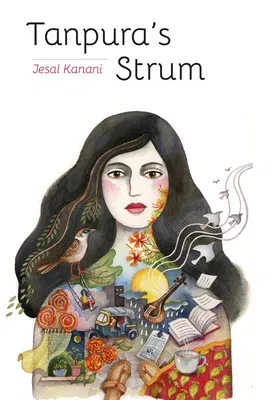Motherhood, heartbreak, loss, love -- even the tangible: vegetables,
beaches, forests and salons, oh, I wanted to write about it all! The
brevity of form made it possible to cover a stunning range of landscapes
-- emotional and physical. Like a jigsaw puzzle, I kept arranging,
rearranging lines in poems, addicted to that dose of serotonin that
washed over me when a haiku or tanka set well.
Guavas pop-up here as do sunflowers, nieces and lovers. Playful and
brooding, heart-breaking and exultant, these poems strobed in watercolor
art, revel as much in the lushness of nature as the depth of feelings
found within a human heart.
Jesal has always been drawn to making beautiful connections with
seemingly disparate ideas. When a haiku juxtaposes two disparate images,
out of the synergy jumps a new, nuanced meaning.
If we look at urban existence, it is fraught with dissonance: the push
and pull of expectations, the contradictions within roles, and also --
unexpected, raw beauty. So, haiku and tanka seem to Jesal as perfect
forms for expressing this fractured, beautiful ordinary life.
Written from the perspective of a young woman, the poems in Tanpura's
Strum draw from the themes of love, heartbreak, loss, motherhood, the
progression of time and nature. Set on a wide-ranging canvas of the
natural world -- beaches, forests and urban flora -- as well as the
domestic -- cafés, homes and street life, the poems rest on nectar-like
moments that make us feel most alive, impassioned and at other times
soul-crushingly human.

